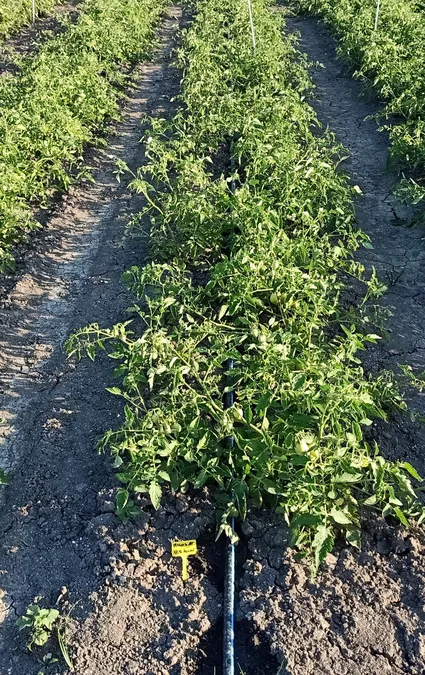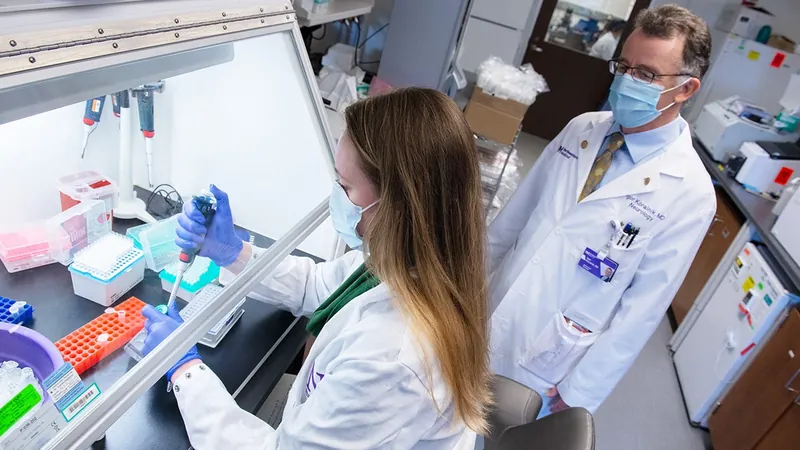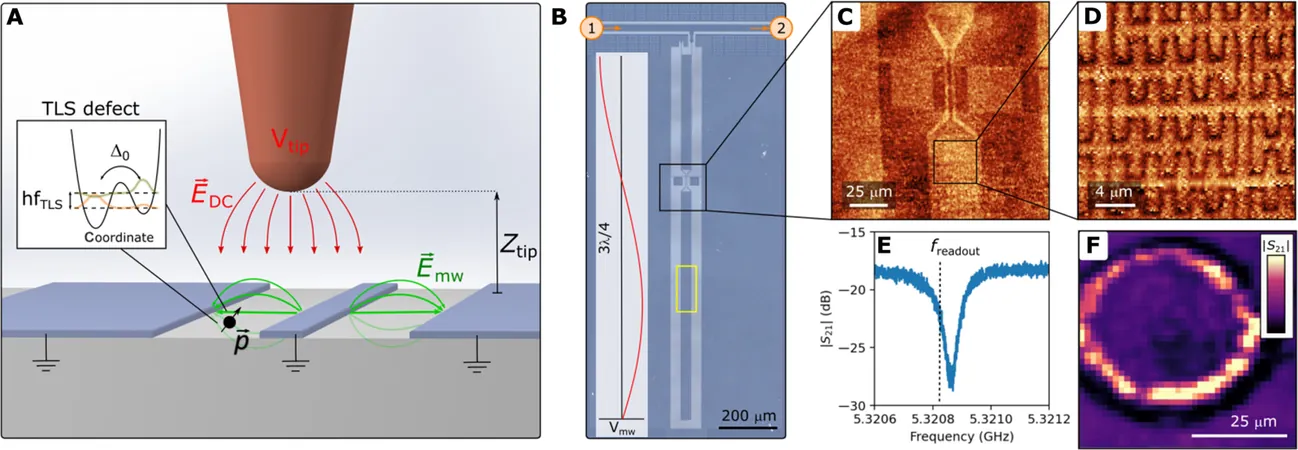
Boost Your Tomato Harvest: Discover the Secret Power of Microbial Biofertilizers and Algae-Based Biostimulants!
2024-10-01
Author: John Tan
Groundbreaking Research Reveals Benefits of Biofertilizers and Biostimulants
In a groundbreaking study from Italy, researchers have revealed that using microbial biofertilizers and algae-based biostimulants can dramatically elevate both the yield and quality of organic tomatoes! This eye-opening research has been published in the esteemed Journal of the Science of Food and Agriculture, sparking excitement in the agricultural community.
The Need for Sustainable Agriculture
As the demand for eco-friendly and cost-effective farming strategies grows, there is a pressing concern regarding declining soil health. This has led to renewed interest in Plant Growth-Promoting Microorganisms (PGPMs), which forge beneficial partnerships with plants, enhancing their performance and resilience against adversities like drought—an increasing worry in our ever-changing climate.
Insights from the Research Team
Emanuele Radicetti, an associate professor at the University of Ferrara and key researcher in this study, emphasized the urgent need for innovative and sustainable farming practices. "It’s crucial to develop agroecosystems that can ensure sustainable crop yield over time," he stated, highlighting the promising future of biofertilizers as a natural solution to reducing chemical inputs in agriculture.
Algae-Derived Treatments
But there’s more! The study introduced not only PGPMs but also natural algae-derived treatments, which serve as powerful biostimulants that boost plant health. These treatments enhance nutrient uptake and overall stress tolerance, resulting in superior crop performance. Radicetti described algae extracts as a "rich source of plant biostimulants," noting that even at low concentrations, they can significantly support plant growth, especially during stressful conditions exacerbated by climate change.
Impressive Findings
The findings are impressive: PGPMs improved root development and overall health in tomato seedlings remarkably. Just 30 days after transplanting, researchers observed highly developed root systems, underscoring the effectiveness of PGPMs in alleviating transplant stress. The pinnacle of these experiments resulted in an astounding yield of 67.2 tons per hectare, achieved through a synergistic application of a PGPM product known as MYCOUP alongside a 1.0% algae-based biostimulant. "The implications are clear," Radicetti noted excitedly, "it’s fascinating to see such strong results from a method that is friendly to the environment."
Future Research Directions
Looking to the future, Radicetti and his team believe that these microbial and algae-based solutions can easily be integrated into farming practices, although they urge that further research is essential to explore their full potential, particularly in relation to drought—a significant concern for agriculture in the coming years.
Advancing Sustainable Farming Methods
This research plays a crucial role in advancing sustainable and organic farming methods. "Innovative farming demands a dynamic and resourceful approach to crop management," said Radicetti. "Every piece of research that enhances our understanding of crop production brings us closer to our goals for sustainability, encompassing environmental, social, and economic factors."
Commitment to Further Research
The team is committed to further examining these treatments, particularly under drought-like scenarios that challenge farmers globally. They’re also investigating the integration of other environmentally-friendly practices, like biochar, cover crops, and no-till farming, along with microbial biofertilizers and algae biostimulants.
Conclusion and Future Outlook
Stay tuned for more exciting updates from the world of sustainable agriculture, and be prepared to transform your farming practices with these innovative solutions that promise not just better crops, but a healthier planet!




 Brasil (PT)
Brasil (PT)
 Canada (EN)
Canada (EN)
 Chile (ES)
Chile (ES)
 Česko (CS)
Česko (CS)
 대한민국 (KO)
대한민국 (KO)
 España (ES)
España (ES)
 France (FR)
France (FR)
 Hong Kong (EN)
Hong Kong (EN)
 Italia (IT)
Italia (IT)
 日本 (JA)
日本 (JA)
 Magyarország (HU)
Magyarország (HU)
 Norge (NO)
Norge (NO)
 Polska (PL)
Polska (PL)
 Schweiz (DE)
Schweiz (DE)
 Singapore (EN)
Singapore (EN)
 Sverige (SV)
Sverige (SV)
 Suomi (FI)
Suomi (FI)
 Türkiye (TR)
Türkiye (TR)
 الإمارات العربية المتحدة (AR)
الإمارات العربية المتحدة (AR)